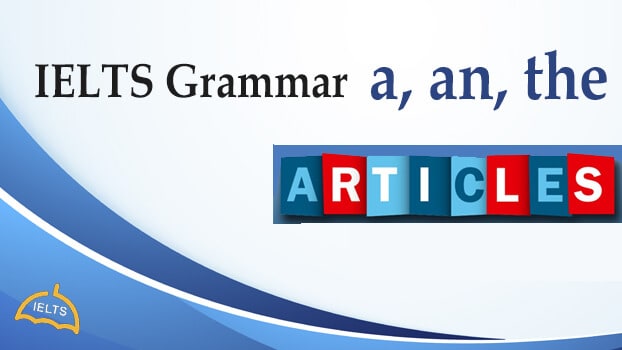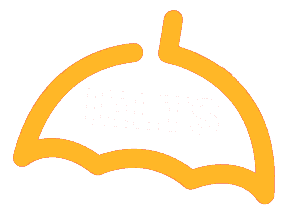IELTS Grammar Articles
IELTS Grammar Articles:
Unlike Indian languages, which has no articles, English uses three articles which define whether a noun is specific or unspecific. The three articles are ‘a’, ‘an’ and ‘the’.The question that most of us, if not all, wonder is “What is an article?”
Articles are words which signify certain characteristics about the noun they are clustered with. For example, in the sentence “After a long ride, a hot shower takes the fatigue away”, we are referring to any random day when one does a long ride, and any hot shower in any washroom is sufficient to take the fatigue away. However, the same sentence, replacing the articles ‘a’ with ‘the’ would change the meaning of the sentence to quite an extent. “After the long ride, the hot shower took the fatigue away”. The previous sentence is referring to a specific long ride on a specific day and a specific hot shower that helped to wash away the fatigue.
To outline it in a sentence, articles in English help determine whether the noun in context is specific or unspecific, singular or plural, etc.
The article ‘a/an’ is used before a singular indefinite noun. For example,
Submit me a write-up by today evening.
The usage of the article ‘a’ implies that a single write-up on any topic can be submitted.
The article ‘the’ is used before a singular/plural definite noun. For example,
The usage of the article ‘the’ implies that a specific write-up is to be submitted.
To outline it in a sentence, articles in English help determine whether the noun in context is specific or unspecific, singular or plural, etc.
The above example shows that English has two types of articles: Definite and Indefinite.
INDEFINITE ARTICLES
The article ‘a/an’ is used before a singular indefinite noun. For example,
- Submit a write-up by evening today.
- A dog met with a bad accident around the corner of the street.
- I am going to buy a book.
On looking closely, you will notice that the usage of the article ‘a’ implies that a single write-up on any topic can be submitted in case of (a), a random dog met with an accident in (b) and any book can be bought in (c).
Note: Indefinite articles are used only before singular nouns in English.
DEFINITE ARTICLES
The article ‘the’ is used before a singular/plural definite noun. For example,
- Submit the write-up by evening today.
- The owner of the restaurant was polite enough to replace the food.
- I am going to purchase the book.
Unlike indefinite articles, you will notice that the usage of the article ‘the’ implies that a specific write-up is to be submitted in (a), a particular man owning a particular restaurant is being talked about in (b) and a specific book is going to be purchased.

IELTS Grammar Articles Are Of Two Types :
1.Definite Article- The
‘The’ is used before a noun to limit the meaning to one particular thing. For example,
Please pass me the chair.
The above sentence would imply the request of a specific chair that is to be passed on, thereby limiting the meaning to one particular chair. It can be used both before singular and plural nouns.
The sun rises in the east.
Sharon took the book from me.
The animals were set loose during the fire.
The Himalayas is the largest mountain range in the world.
The quick brown fox jumped over the tall fence.
Sam is the best at cooking stories.
2.Indefinite Article- A/An
There are two types of indefinite articles: ‘a’ and ‘an’. Unlike the definite article ‘the’, ‘a’ or ‘an’ are used before singular nouns only and indicates generality.
In other words, ‘a’ or ‘an’ refers to a general idea rather than a particular thing. For example,
Should we go to watch a movie?
The above question refers to watching any movie and does not specify a movie in particular.
Difference Between IELTS Grammar Articles ‘A’ And ‘An’
The article ‘a’ appears before a singular noun which starts with a consonant.
For example, a temple, a book, a wheel, a chair; or before a noun phrase starting with a consonant like a thin phone, a black dog.
In other words, the following needs to be starting with a consonant.
On the other hand, the indefinite article ‘an’ appears before nouns that start with a vowel.
For example, an egg, an excessive urge, an elephant, etc.
Please pass me a notebook; any notebook will do.
I do not have a fixed timetable.
I saw an elephant at the zoo.
Exceptions In IELTS Grammar Articles
Every rule has an exception and articles are no different. We now know as a rule that nouns starting with a consonant take ‘a’ before them and nouns starting with a vowel take ‘an’.
However, words starting a consonant, but pronounced as a vowel take ‘an’ before them. For example,
The mayor is an honourable man.
She is an honest employee.
Another exception to the rule is with words starting with the letter ‘u’.
When ‘u’ is pronounced as a full ‘u’, as in uniform, the article preceding it is ‘a’ and not ‘an’. However, when ‘u’ is pronounced in other way, the articles that precedes it is ‘an’. For example,
An umbrella
A united front
A uniform
An urban settlement
An unarmed man
Acronyms too follow the same rule: an LCD display, a USB port, an HR department, an LnD department, etc.
IELTS Grammar Articles Before A Noun Phrase
Noun phrases are often of the order article + adjective + noun and in such cases, the appearance of ‘a’ or ‘an’ depends on the article that follows it as mentioned earlier.
For example,
An unearthing story
A ridiculous man
An ugly-looking cat
Uncountable Nouns
Nouns that cannot be counted are called uncountable nouns.
For example, water, milk, hair, etc.
Uncountable nouns for the very same reason never take ‘a’ or ‘an’ before them, because these indefinite articles can only be used for singular nouns. However, ‘a litre of water’ is perfectly grammatical because litre is a unit of measurement and is singular in number.
This room needs some light. (not ‘a light’)
Pass me some water. (not ‘a water’)
I need a little love. (not ‘a love’)
Note: Using An Article Before Quantified Uncountable Noun Is Grammatical.
There are certain nouns that necessitate the use of the definite article ‘the’.
1. Historical Monuments
The article ‘the’ is always used before historical monuments like ‘the Statue of Liberty’, ‘the Charminar’, etc.
2. Holy Books
The article ‘the’ is always used before religious texts like ‘the Quran’, ‘the Gita’, ‘the Bible’, ‘the Upanishads’, etc.
3. Geographical Entities
The article ‘the’ is always used before rivers, mountains, deserts, oceans, etc.
For example, the Himalayas, the Thames, the Sahara, the Pacific Ocean, etc.
4. Specific Countries
The article ‘the’ is only used before the three nations ‘The United States of America’, ‘The United Arab Emirates’, ‘The United Kingdom’.
Note: NO other country takes no definite or definite article before them. For example, the India, the Germany, etc are wrong.
5. Omission Of Articles
In some cases, articles are omitted from the preceding place of a noun. In such cases, the article is not present, but implied. Where do they appear? These omissions typically occur before abstract nouns, i.e., names of entities that cannot be touched or seen, but can only be felt.
For example, love, courage, creativity, etc. Sports and academic subjects do not need the use of articles.
For example,
I am fond of playing cricket.
I have always wanted to study Chemistry.
Prevention is better than cure.
Charity begins at home.
Looking for a score above 7 in your IELTS Test? Enroll for our IELTS video course that has helped people to score high in IELTS

